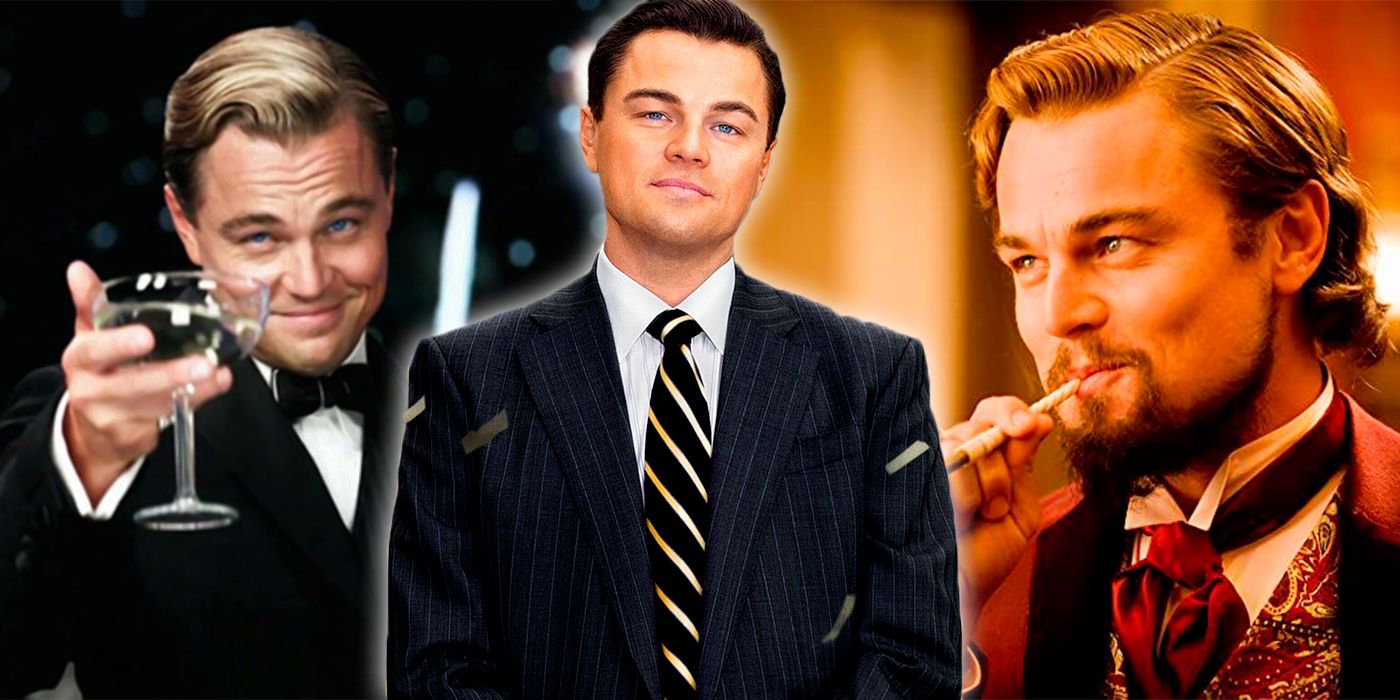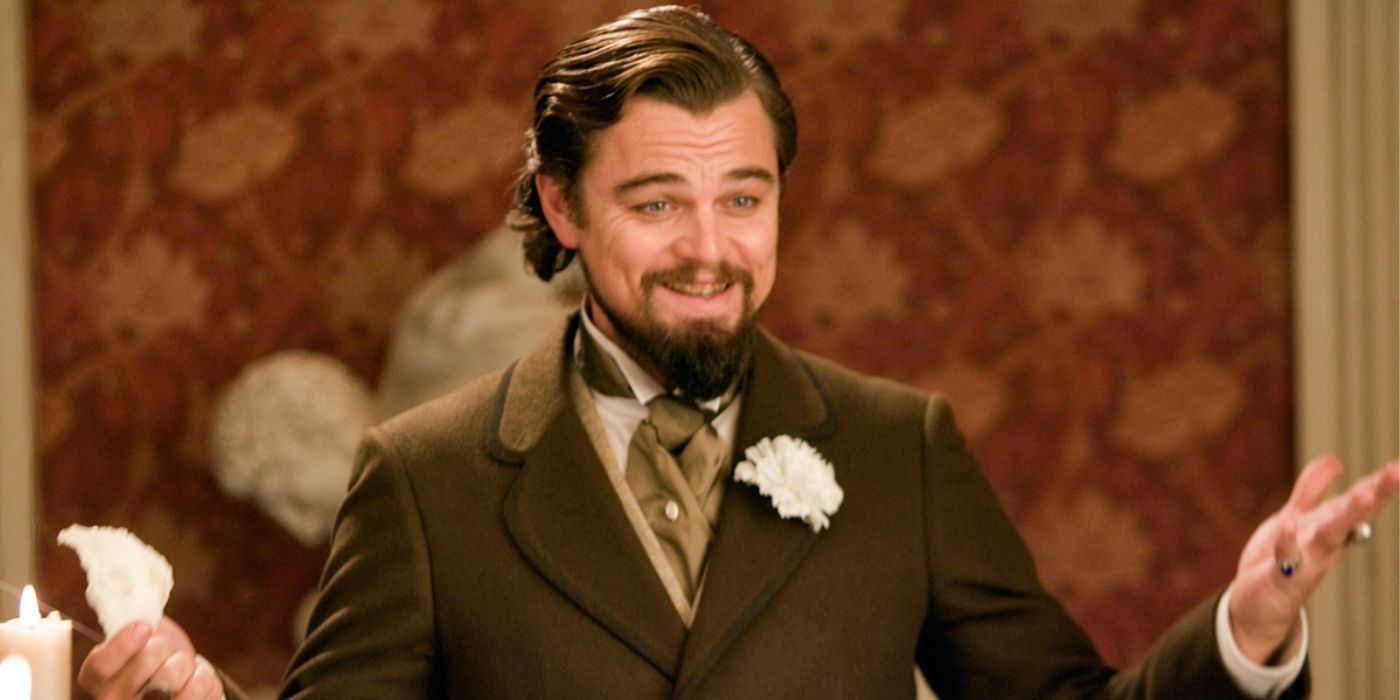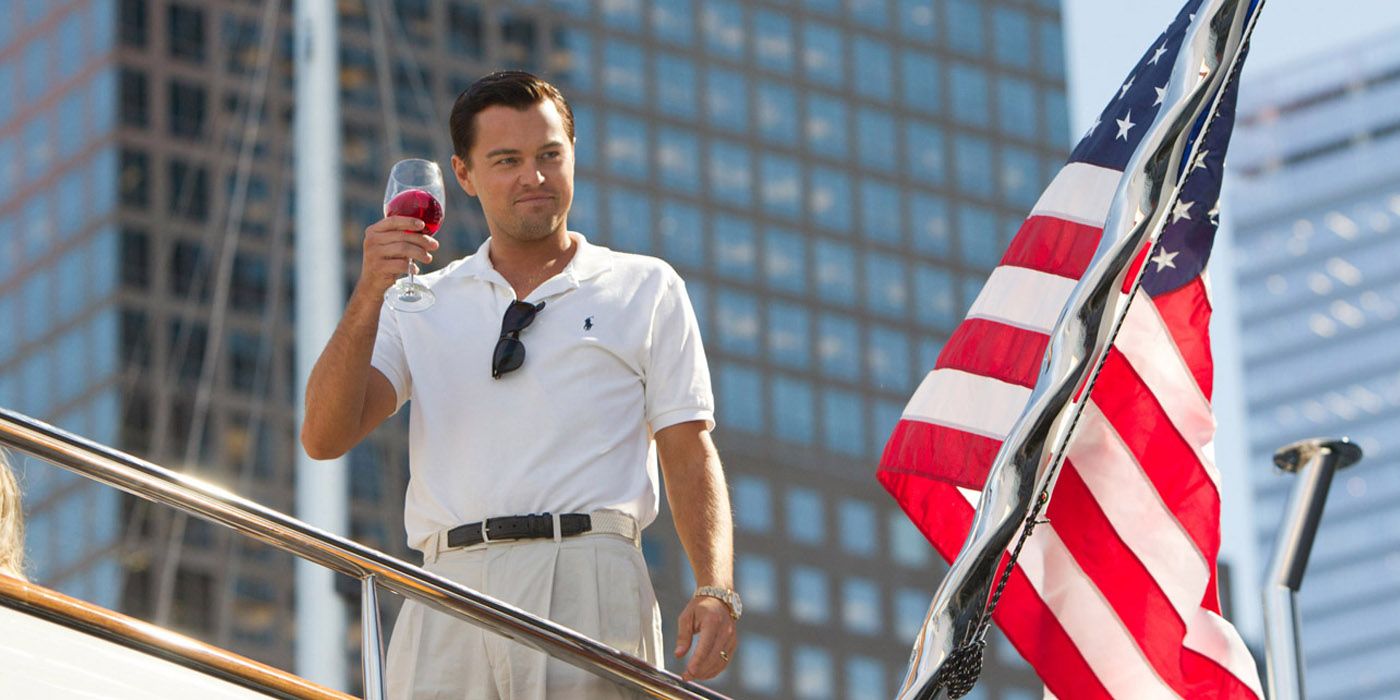One of the most talented actors in the modern era, Leonardo DiCaprio makes a name for himself across many films. He tends to play vivacious leading roles such as Jack Dawson in Titanic or Jay Gatsby in The Great Gatsby, and they are the perfect fit for his acting style. But he's also played his fair share of unsavory characters. In an interview with Studio 360, DiCaprio comments on his roles, particularly in Django Unchained, The Wolf of Wall Street and The Great Gatsby. In his opinion, these three films, though created by different directors, could be seen as an unofficial trilogy due to their common themes.
In the interview, DiCaprio claims that he sees these three movies as a "trilogy of corruption in America through different time periods." Even though the stories in these films vastly differ, from the downfall of a slave owner to the rise and fall of a stockbroker on Wall Street, there is a thread of commonality that ties them all together -- their utter and complete sense of corruption.
Perhaps the most obvious story of corruption is Django Unchained, directed by Quentin Tarantino. It follows the story of Django, a slave who earns his freedom by helping a bounty hunter track down his next catch. The film is very explicit in its representation of the American slave trade, and it clearly shows how corrupt many people were back in that time. The nature of corruption is to appear normal, so in this case, the subject of slavery was treated as normal by everyone except Django, who continuously struggled against the slave owners and fought for both his freedom and others. Though DiCaprio plays a notorious slave owner in this film, he is quick to see how wrong and abhorrent those times really were.
The next film in his unofficial trilogy is The Great Gatsby, directed by Baz Luhrmann. This story is set in the 1920s and follows Jay Gatsby, a multi-millionaire who seems vaguely interested in his lavish lifestyle. The film is more about the corruption in human nature and how far people are willing to go for the American dream. Jay grew up in a more modest household and fell in love with Daisy Buchanan before being deployed off to war. Years after, they reconnect via a mutual friend and Gatsby hopes that his wealth and fancy possessions will win her back over to him.
The final film in DiCaprio's trilogy is The Wolf of Wall Street, directed by Martin Scorsese. Set during the 1980s, it follows Jordan Belfort, a young and ambitious stockbroker who aims to make as much money as humanly possible, no matter the cost. He delves into the world of drugs, prostitution and sneaky financial schemes to acquire as much wealth for himself as he possibly can. He loses two wives in the process and gets into some intense legal trouble with the FBI. The Wolf of Wall Street shows the real depths of corruption that financial companies will go to for a mere buck.
All three of these films deal with corruption in different ways, from the corruption of people to the corruption built into outdated laws. It makes sense why DiCaprio would see these movies as connected. They all show people struggling to obtain wealth, presenting the kind of greed that drives people to own other humans, callously cover up murders and throw all caution to the wind. In each era of America, one thing is consistent -- the level of deceit.



